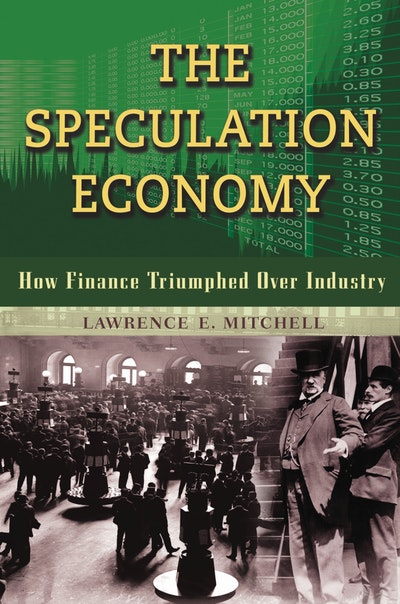[]
- Published: 1 January 2018
- ISBN: 9781576756287
- Imprint: Berrett-Koehler
- Format: Paperback
- Pages: 416
- RRP: $59.99
The Speculation Economy
How Finance Triumphed Over Industry
Formats & editions
Buy from…
- Published: 1 January 2018
- ISBN: 9781576756287
- Imprint: Berrett-Koehler
- Format: Paperback
- Pages: 416
- RRP: $59.99



